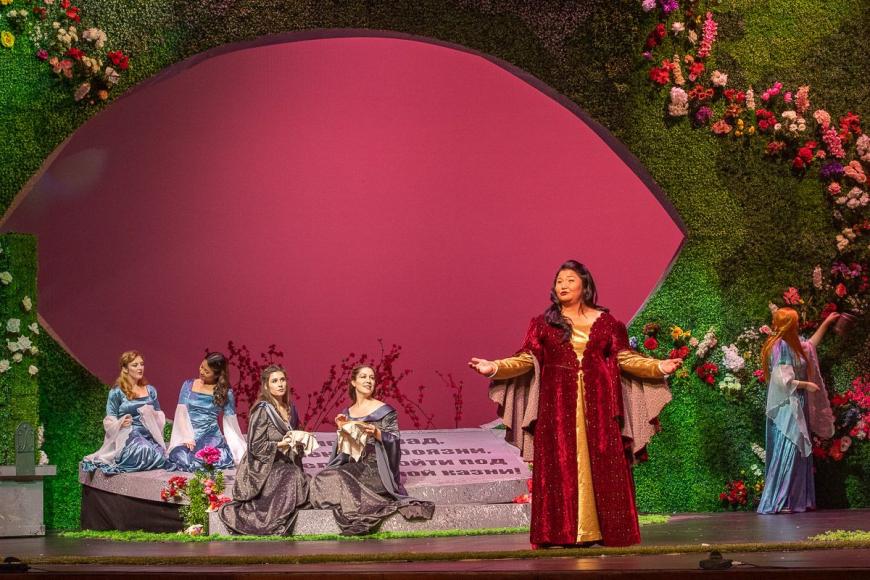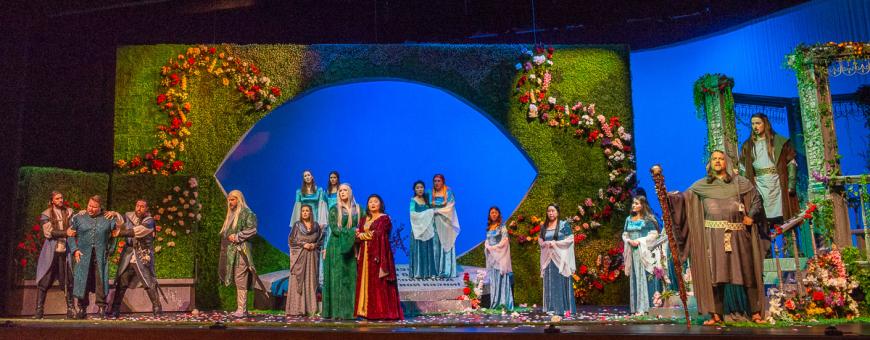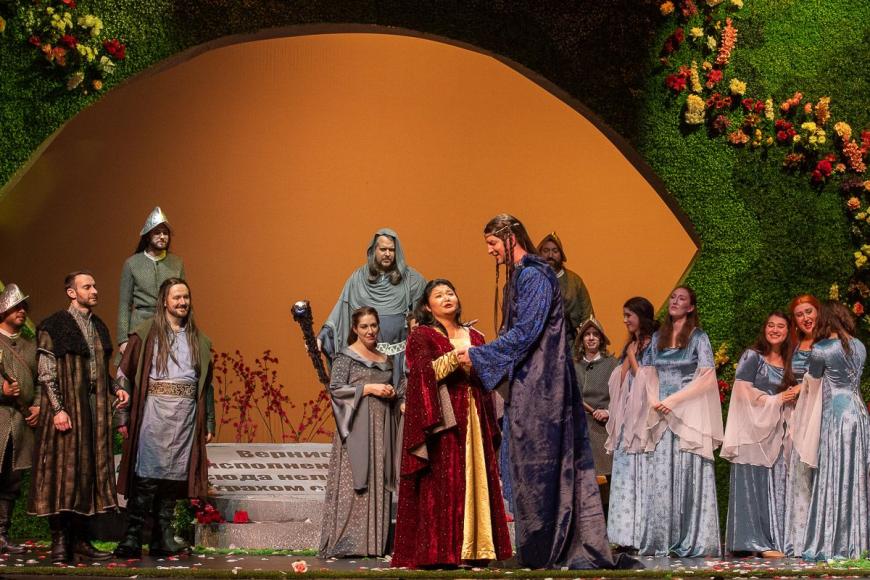
The plot of Peter Tchaikovsky’s Iolanta includes several features of Romantic myth unlikely to strike any opera aficionado as unconventional: an implausible love story, characters with distinguished birth, and a fairytale ending. Iolanta is a princess who lives an isolated life in a castle. Blind by birth, she is unaware of her own blindness; her father, the king, has decreed that she should never find out about her disability (nor the fact that she is a princess). When a count happens upon Iolanta’s garden, he immediately falls in love with her. Realizing she is blind, he explains sight to her. Several harrowingly dramatic scenes later, Iolanta undergoes a treatment that confers sight to her, and she is wed to the count.
Like many other happy endings to fables drafted in centuries past, the conclusion to Iolanta is unbelievable and unnuanced. The tinge of discomfort we may experience with its ending as viewers comes not only from the fact that treatments for blindness are rare, but also from the conclusion’s implication that blindness is an unremitted deficiency. Instead of sweeping this requisite suspension of disbelief under the rug, a new production of Iolanta directed by Josh Shaw at the Pacific Opera Project (POP) probes the princess’s experience of blindness by casting Cristina Jones, a blind soprano, in the title role.

Shaw met Jones in 2018 while casting for POP’s upcoming season and immediately recognized that she was a “really special performer.” While conductor Isaac Selya worked on that production for the Queen City Opera in 2018, Shaw thought about directing a production himself. “Maybe there’s some way that a story about a blind princess could be done by a blind soprano, so that we don’t have a sighted person playing blind for 99 percent of the opera,” Shaw remembered thinking. He took his idea to Selya and Jones, who both expressed interest in the project. Jones replied that she would participate if the opera was “done in a way that would be beneficial to the blindness community.”
Jones said that the Iolanta role was one that many of her blind friends have been “forced” to do in the past for school. The key deciding factor for her involvement in the production was respect — that she have the opportunity to voice her concerns and shape the production accordingly. And for Shaw, having a blind singer play a blind character goes beyond fulfilling some surface-level checkmark for representation. “There’s just so much that is innate to the way that she moves, the way she functions that a sighted singer probably could never duplicate, even with months of training on how to be a blind person,” Shaw said.

Beyond a more authentic portrayal of blindness, Jones’ input transformed how POP will be interpreting the ending to Iolanta. Jones communicated to Shaw that in her opinion, “there were some definitely problematic parts in the opera” that she was “not comfortable with keeping the way it was.” The “happy ending” of the opera was not in keeping with what she believes would be a happy ending — the original ending, she said, “is not a narrative I care to perpetuate.” She stressed this point in collaborating with Shaw. “It’s not necessarily that it’s wrong,” Jones clarified — there are many in the blind community, she noted, who would unreservedly endorse the happiness of Iolanta’s ending — but that she “would feel dishonest, and very ethically and morally opposed, to keeping that ending.”
Both Shaw and Jones were tight-lipped about how exactly they would be portraying Iolanta’s sighted transformation at the end of the opera, but indicated that it would be more mystical than traditional renditions. “It takes her wanting to see for his powers to maybe work,” Shaw said. While they stuck with using the original libretto, Shaw hoped it would be clear in POP’s production that the plot takes place in a magical realm, with the costumes gesturing toward a fantasy/sci-fi realm.
Much of the preparation has been conducted virtually. For the better portion of the past three weeks, the production has been in rehearsal. “It’s such a very unique situation,” Shaw explained, because “the singer can’t see the conductor — they really have to be locked in together.” In terms of staging, Shaw said that he needed to rethink how to communicate effectively: “it’s all about describing where she goes, or what she can do with her hands. There’s also just the logistics of, how do you cross from this gazebo on stage left to a platform onstage right?” Ironically, certain scenes are especially tricky to pull off: in one scene, Iolanta is asked to pick a red rose for the count, but picks a white one — cluing the count in on the fact that she’s blind — so Jones needs to be sure to pick the wrong one.
POP will be making the opera accessible to the blind community, with Braille libretti on hand and an audio program. “This is our first Russian opera. It’s the largest orchestra we’ve ever had. It’s a once-in-a-lifetime concept,” Shaw said. “I hope people come out to see it.”
“I’ve always been portraying a sighted character, trying to wipe all vestiges of blindness out of a character. Now it’s okay for me to feel around for the flowers,” Jones said.








